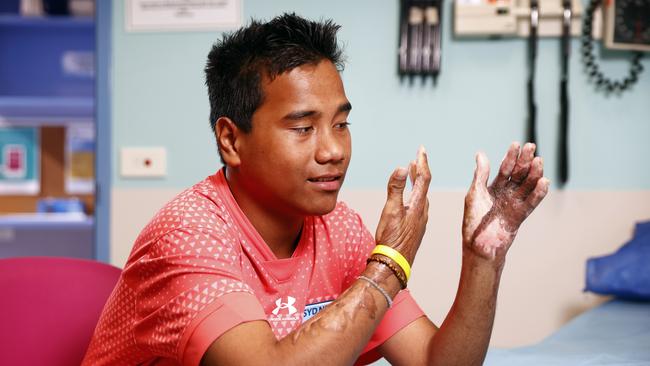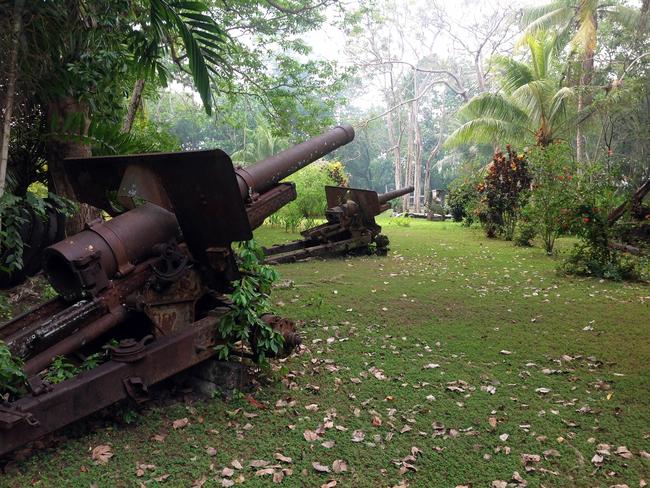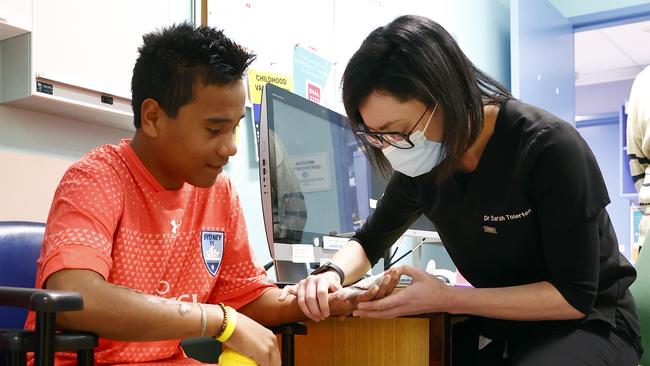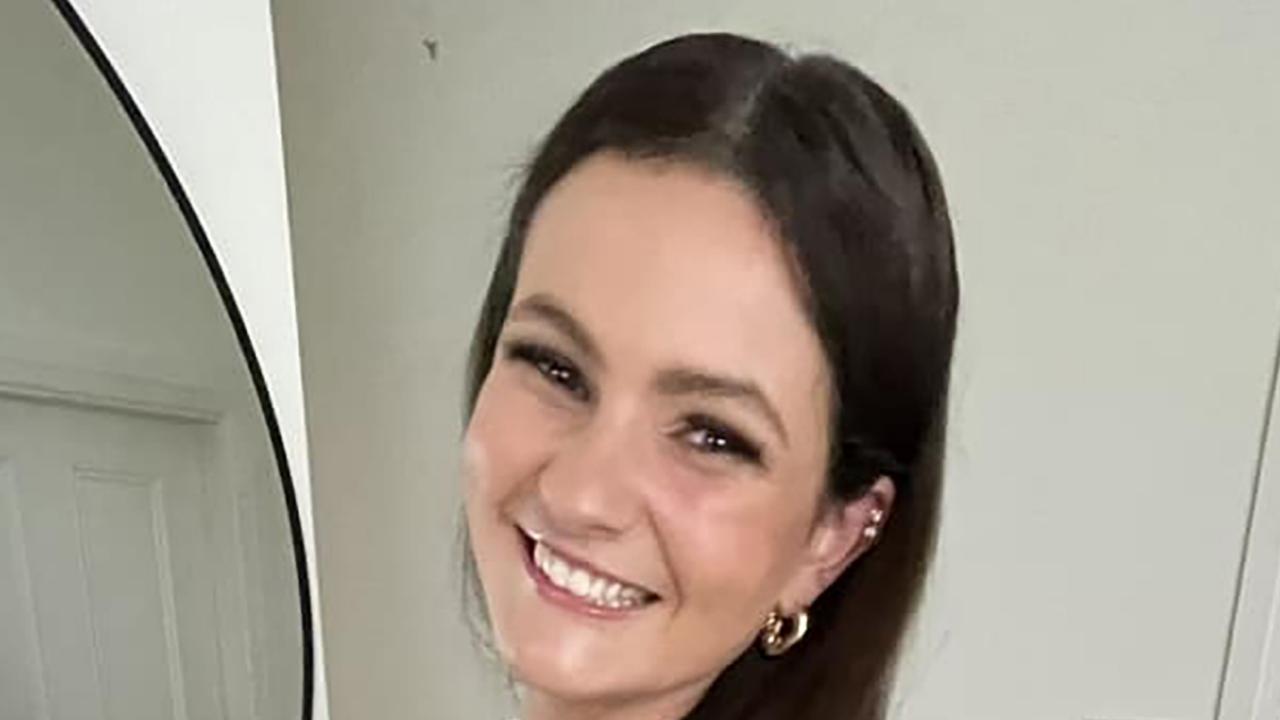Sydney Children’s Hospital surgeons repair boy’s life-altering bomb injuries
Picking up an unexploded bomb had life-altering consequences for Senri Tengata. Thankfully, a dedicated team of Australian doctors and charity volunteers have turned the fortunes of the Solomon Islands youngster.

NSW
Don't miss out on the headlines from NSW. Followed categories will be added to My News.
Playing after school one day near his home in the Solomon Islands, Senri Tengata picked up an old mortar– left over from World War 11 - lying in a creek.
Despite warnings from family to never touch any munitions left scattered around the islands, curiosity got the better of the 11-year-old and it exploded in his hands.
The old 81mm bomb poured white phosphorus – a horrific chemical banned internationally from being used on civilians because it just keeps on burning through to the bone - onto his hands and arms.
He was rushed to hospital by his father with terrible burns and despite the best of local care, the fingers of his left hand fused to his palm, leaving it permanently clenched in a first. He also suffered constrictions in his right hand.
And he’s been so embarrassed by the injuries ever since he keeps his hands in his pockets when out in public.

That was two years ago, and with little medical expertise in the islands, he was stuck with the debilitating injury for the rest of his life. At least 20 Solomon Islanders are injured and die from unexploded ordnances, left over from battles between Japan and the USA.
But now, thanks to top Australian doctors at the Sydney Children’s Hospital (SCH) at Randwick – and dedicated efforts from the Rotary Oceania Medical Aid for Children (ROMAC) charity to fly him to Australia – he’s likely to regain the use of his hand.

Senri, now 13, has had two major hand operations, including one that inserted metal rods into each of his fingers, as way of stretching them and allowing a skin graft to work.
Rotary volunteer and Australian guardian for Senri, Ros Kelly said it had been a long journey, with delays from Covid lockdowns and the passing of his mother, to get him to Australia.
“He had an eight hour operation,” Ms Kelly said. “The biggest fear was his tendons and underneath would have been burnt, as phosphorus bombs burn inwards. But the tendons were all intact thank goodness.”
Senri’s first words after surgery were to ask if his hand was straight and would he be able to go back to being a goal keeper, as he loves soccer and couldn’t use two hands to hold a ball, or put on a glove.

“I like how I can open my hand, I couldn’t do that before,” he said.
“The bomb was in the mud, in the creek. I just wanted to know if it was a live bomb or a dead bomb and then I touched it.
“I just moved it, but somehow, I don’t know what happened - it exploded.”
His doctor, specialist plastic surgeon Dr Sarah Tolerton from SCH says Senri is “very stoic”.
“Before he couldn’t do anything that required two hands, or grasp with that left hand. He’ll be able to catch a ball.”
“Because his hand and fingers were fused for so long, we had to wire each of his fingers with temporary wires to keep them straight, like a splint but internally.
“What we used was what is basically a synthetic material, or matrix, which allows the body’s normal healing tissue to grow into it and we put it over the exposed tendons.”
When Senri returns home, after several more weeks in Australia, he’ll face up to 24 months of physiotherapy to regain the function in his hand, but his doctors, carers and ROMAC say they are very pleased with his progress after the life-changing medical care.





